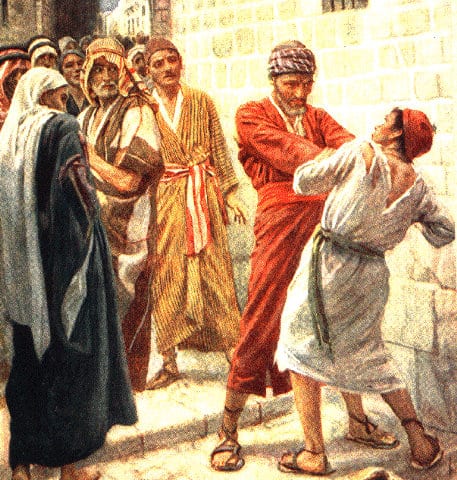
To forgive or not to forgive
The servant in the parable (Matthew 18:21-35) begged for forgiveness and his master forgave his large debt. However, when a fellow servant begged for forgiveness for a much smaller debt, he was ruthless and he had the fellow servant thrown in prison until the debt was repaid. The master called him a wicked servant because despite being granted a huge favor, he showed no pity towards others. As a result, he was handed over to torturers until he paid back his own debt.
What causes unforgiveness? The parable does not tell us why the servant refused to forgive the smaller debt of a fellow servant, but some causes of unforgiveness could be pride, arrogance and narcissism. Some people may think: I deserve to be forgiven, or I was lucky to be forgiven; but I don’t have to forgive others. Another reason why people are reluctant to forgive is fear: some people fear that once they forgive, they will be hurt all over again, or that they will again be taken advantage of. But really, we can still forgive, while at the same time, put safeguards to prevent being taken advantage of.
What can we do if we find ourselves in those situations? Perhaps we can examine the effects of unforgiveness and assess whether it is worth living with unforgiveness:
- Unforgiveness destroys family relationships – husbands, wives, children and parents won’t forgive each other. Unforgiveness breeds resentment and bitterness; is that kind of family life worth living?
- Unforgiveness can become a huge burden to carry. This burden comes in the form of negative thoughts and emotions that linger in our minds and hearts. When this happens, it becomes harder for us to focus on things that we need to do; e.g., our work, our plans, our well-being and happiness.
- Unforgiveness can eat us up inside like a cancer. It grows inside of us, deepening our feelings of resentment and bitterness.
- Some people think that their refusal to forgive makes the other person feel guilty – like a way to get even. But in reality, it’s the unforgiving person that suffers the most!
Here are two pieces of advice from the bible:
- From the Old Testament in the Book of Sirach: Forgive your neighbor’s injustice; then when you pray, your own sins will be forgiven. Could anyone nourish anger against another and expect healing from the LORD? Could anyone refuse mercy to another like himself, can he seek pardon for his own sins? If one who is but flesh cherishes wrath, who will forgive his sins? Remember your last days, set enmity aside; remember death and decay, and cease from sin! Think of the commandments, hate not your neighbor; remember the Most High’s covenant, and overlook faults. (Sir 28:2-7)
- From the New Testament in the Letter of St. Paul to the Romans: Do not repay anyone evil for evil; be concerned for what is noble in the sight of all. If possible, on your part, live at peace with all. Beloved, do not look for revenge but leave room for the wrath; for it is written, “Vengeance is mine, I will repay, says the Lord.” Rather, “if your enemy is hungry, feed him; if he is thirsty, give him something to drink; for by so doing you will heap burning coals upon his head.” Do not be conquered by evil but conquer evil with good. (Romans 12:17-21)
So, what does it mean to forgive someone? First of all, it does not mean forgetting the offense as if nothing happened. After all, how can one forgive something that one cannot remember? True forgiveness is when one can continue to forgive even while one is constantly reminded of the hurt. From a biblical perspective, forgiveness means two things: It means not taking revenge, and it means helping your enemy when he is truly in need of your help.
One common question on forgiveness is: Should I wait for an apology in order to forgive someone? The problem with waiting for an apology is that it may never come, and all that time we are living with ill feelings.